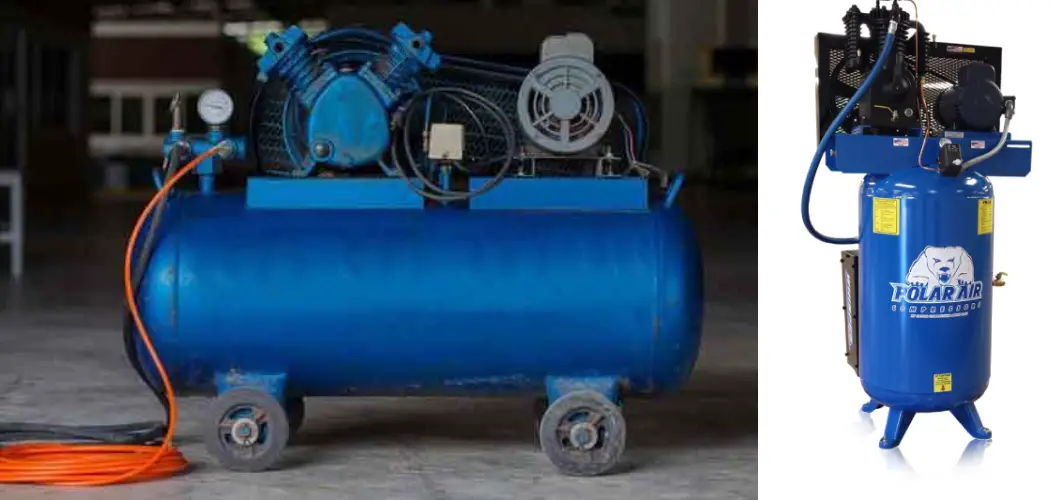An air compressor can be a great addition to any home workshop but can also be quite loud. If you’ve ever tried to use an air compressor in a noisy environment, you know how frustrating it can be. That loud noise can drown out your conversations and keep you from hearing the compressor’s warnings.
But with a little work, you can quiet an air compressor and get back to work. If you’re looking for ways to quiet your air compressor, you’ve come to the right place. This blog post will show you how to quiet an air compressor and make it more pleasant to use. We’ll also provide tips on selecting the right air compressor for your needs. Stay tuned!
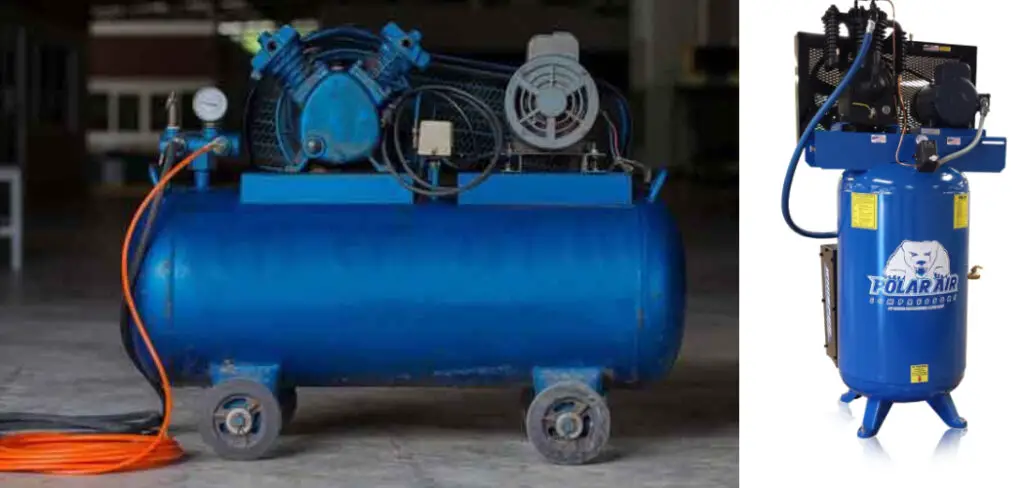
What is an Air Compressor?
An air compressor is a machine that converts power (usually from an electric motor or gasoline engine) into potential energy stored in pressurized air. Air compressors are used in various applications, from inflating tires to powering air tools and paint guns.
What Makes Your Air Compressor Noisy?
If your air compressor is located near your living space, its noise can be quite annoying. The source of the noise is typically the electric motor or gas engine that powers the compressor. Another contributing factor is the compressor’s pulley and belt system.
10 Ways of How to Quiet an Air Compressor
1. Get a Noise-dampening Feature:
Check for models with noise-dampening features if you’re looking for a new air compressor. This can help to reduce the overall noise output of the machine. If your air compressor doesn’t have noise-dampening features, there are still ways to help reduce the noise it produces.
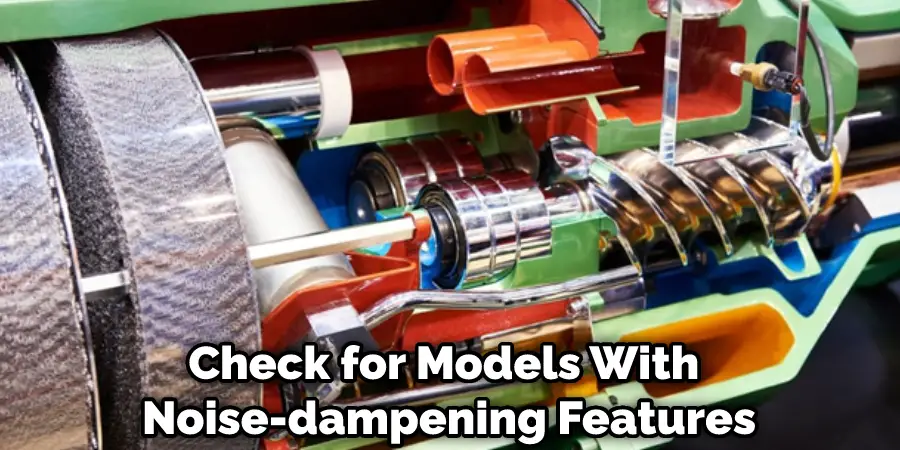
2. Use a Lower Horsepower:
A higher horsepower air compressor will typically be louder than one with lower horsepower. If possible, choose an air compressor with a lower horsepower rating. It will still be powerful enough to do most tasks but will produce less noise. Be careful when using a lower horsepower air compressor for tasks that require a lot of power, such as driving nails or stapling.
3. Use an Air Compressor With a Slower Speed:
A slower-speed air compressor will also tend to be quieter than one that runs at a higher speed. If you have the choice, opt for a slower model. Basically, the slower, the better when it comes to noise reduction.
4. Add Sound-dampening Materials:
If you already have an air compressor, you can try adding sound-dampening materials to it. Sound-dampening materials are designed to reduce the amount of noise that is emitted from a machine. You can find these materials at most home improvement stores. This material can help to reduce the noise that it produces. Things you should remember when using sound-dampening materials are that they can trap heat, so be sure to use them sparingly.
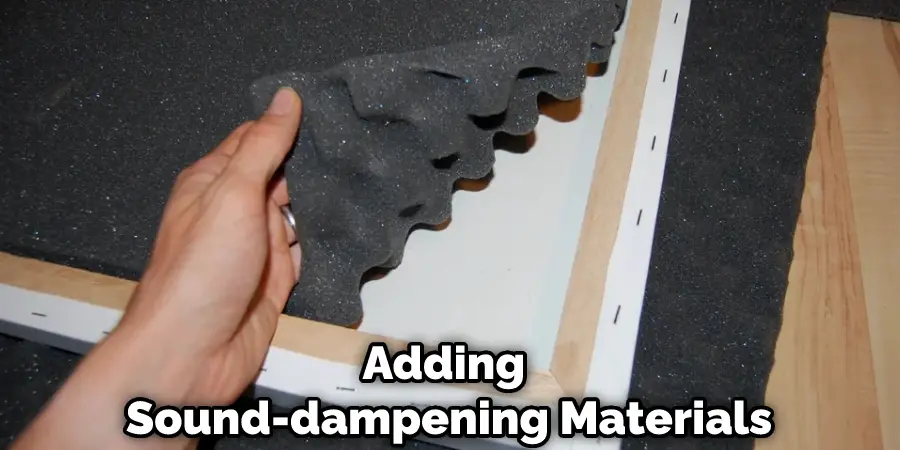
5. Use a Well-insulated Area:
If possible, use your air compressor in a well-insulated area. This area can be found in the basement or in a closet. This will help to trap the noise inside, preventing it from escaping and bothering you or your neighbors. This can help to trap sound and reduce the overall noise level. When choosing such an area, ensure it is well-ventilated to prevent heat build-up.
6. Use a Larger Tank:
A larger tank is going to be quieter than a smaller one. This is because the larger tank will take longer to fill up with air, meaning the compressor won’t have to run as often. As a result, there will be less noise overall. If you don’t need a lot of power from your air compressor, choosing a model with a larger tank is a good option.
A larger tank on an air compressor will help reduce the number of times the machine has to cycle on and off. This can lead to a quieter overall operation. You can set a larger tank by either buying a model that comes with a larger tank or by upgrading the tank on your existing air compressor.
7. Locate Your Air Compressor Away From Living Areas:
If possible, try to locate your air compressor in an area that is away from where you live. The areas may be detached garage or shed. This will help reduce the amount of noise you must endure. If you don’t have an area like this, try locating your air compressor as far away from living areas. The further it is from where you live, the less noise you’ll hear. This can help reduce the amount of noise you’re exposed to.
8. Use a Muffler on Your Air Compressor:
Adding a muffler to your air compressor can help quiet the machine significantly. Be sure to check with your air compressor’s manufacturer to see if a muffler is compatible with your model. To check it, you need to find a place to purchase one. The muffler can be used by attaching it to the exhaust port on your air compressor. Doing this can help reduce the amount of noise emitted from the machine.
9. Use a Quiet Motor:
Some air compressors come with motors that are specifically designed to be quiet, but there will be a little more expensive. If you’re looking for a quiet air compressor, try to find one with a quiet motor. This can help reduce the amount of noise produced by the machine.
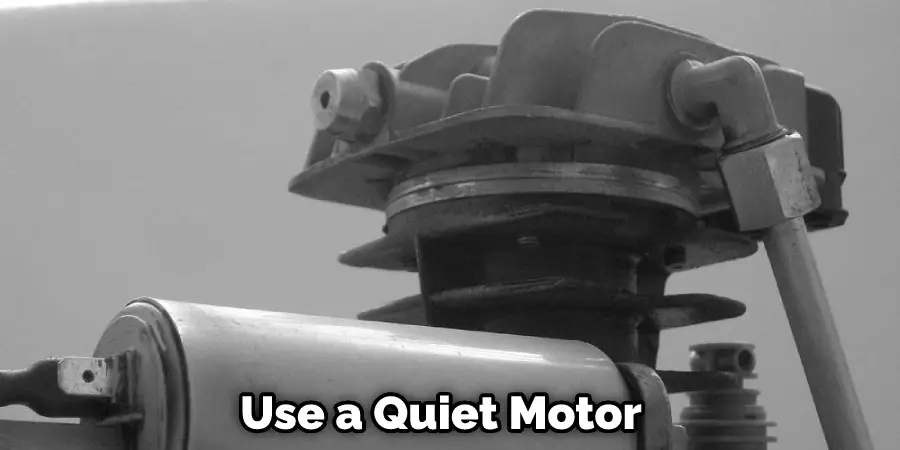
10. Regularly Maintain Your Air Compressor:
Be sure to regularly maintain your air compressor according to the manufacturer’s instructions. This can help to prevent potentially noisy problems from developing. You can maintain your air compressor by regularly changing the oil and air filters. You should be careful when changing the oil, as spills can be quite noisy.
Hopefully, these tips on how to quiet an air compressor will help you to enjoy using your machine more. Remember, if you’re looking for a new air compressor, be sure to check for models with noise-dampening features. And, if you already have an air compressor, try adding some sound-dampening materials to it. With a little bit of effort, you can make your air compressor much more pleasant to use.
How to Select the Right Air Compressor?
Here are some tips on choosing an air compressor that will be both effective and quiet.
1. Decide How You’ll Be Using It:
The first step is deciding how you’ll use your air compressor. This will help you narrow down your choices and find a well-suited model for your needs.
2. Consider the Noise Level:
As you shop for an air compressor, be sure to pay attention to the noise level. Models with lower noise levels will obviously be more desirable than loud ones.
3. Choose the Right Size:
Another important factor to consider is the size of the air compressor. You’ll want to choose a large enough model to handle your needs but not so large that it’s cumbersome or difficult to move around.
4. Consider the Cost:
Of course, the cost is always a factor to consider when shopping for an air compressor. Fortunately, there are models available at all price points. Make a list of the most important features to you and compare prices from different brands. You may be surprised at how affordable a quiet air compressor can be!
5. Read the Reviews:
Finally, be sure to read reviews before making your purchase. This will give you a good idea of what others think of the model you’re considering and help you to make the best decision possible.
Precautions That Should Be Taken When Quiting an Air Compressor
Now that you know how to quiet an air compressor, there are a few precautions that you should take. First of all, be sure to read the manufacturer’s instructions carefully before using your air compressor.
This will help you to avoid any potential problems. Additionally, be sure to wear ear protection when using your air compressor. And, if possible, try to locate your air compressor in an area that is away from where you live. This can help reduce the amount of noise you’re exposed to.
These tips will help you enjoy using your air compressor without problems. Remember, a little bit of noise is to be expected, but there’s no reason why you can’t enjoy the benefits of an air compressor without being disturbed by its noise. So go ahead and give it a try!
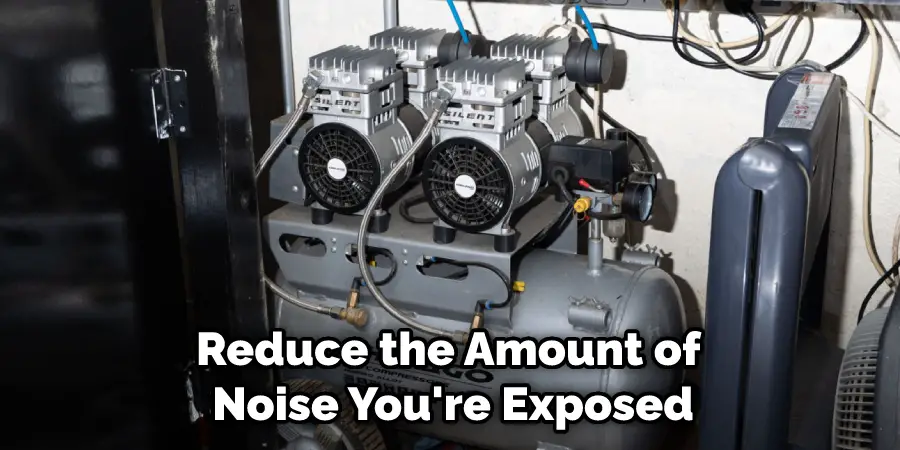
Conclusion
Follow this advice, and you should be able to reduce the amount of noise your air compressor makes significantly. By creating a quieter workspace, you’ll be able to focus better and get more done in less time. We hope this guide on how to quiet an air compressor was helpful.
You may even find that you enjoy using your air compressor more when it’s not so loud. So don’t wait any longer; put these tips into practice and start enjoying the benefits of a quiet air compressor today! If you have any questions or want to share your experiences, please comment below.
You Can Chack It Out to Cool Down an Overheated Compressor

